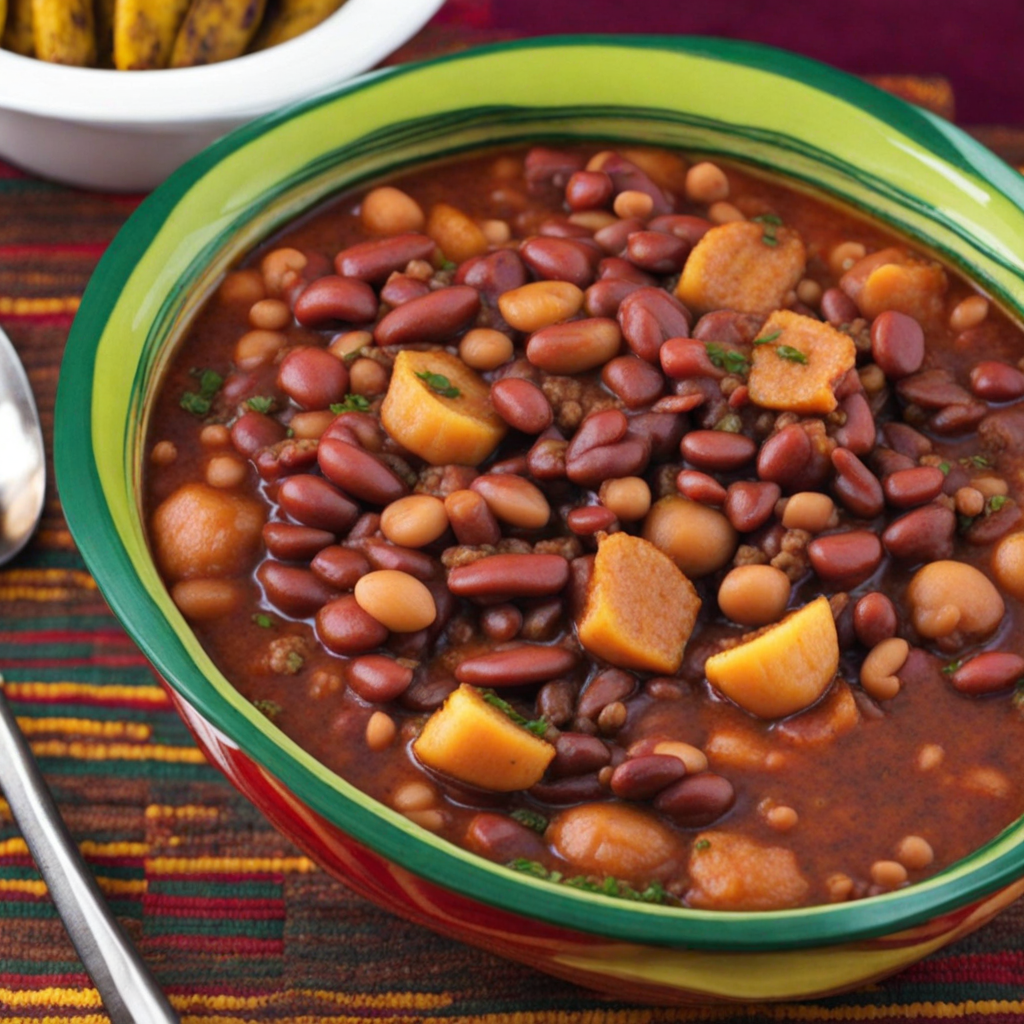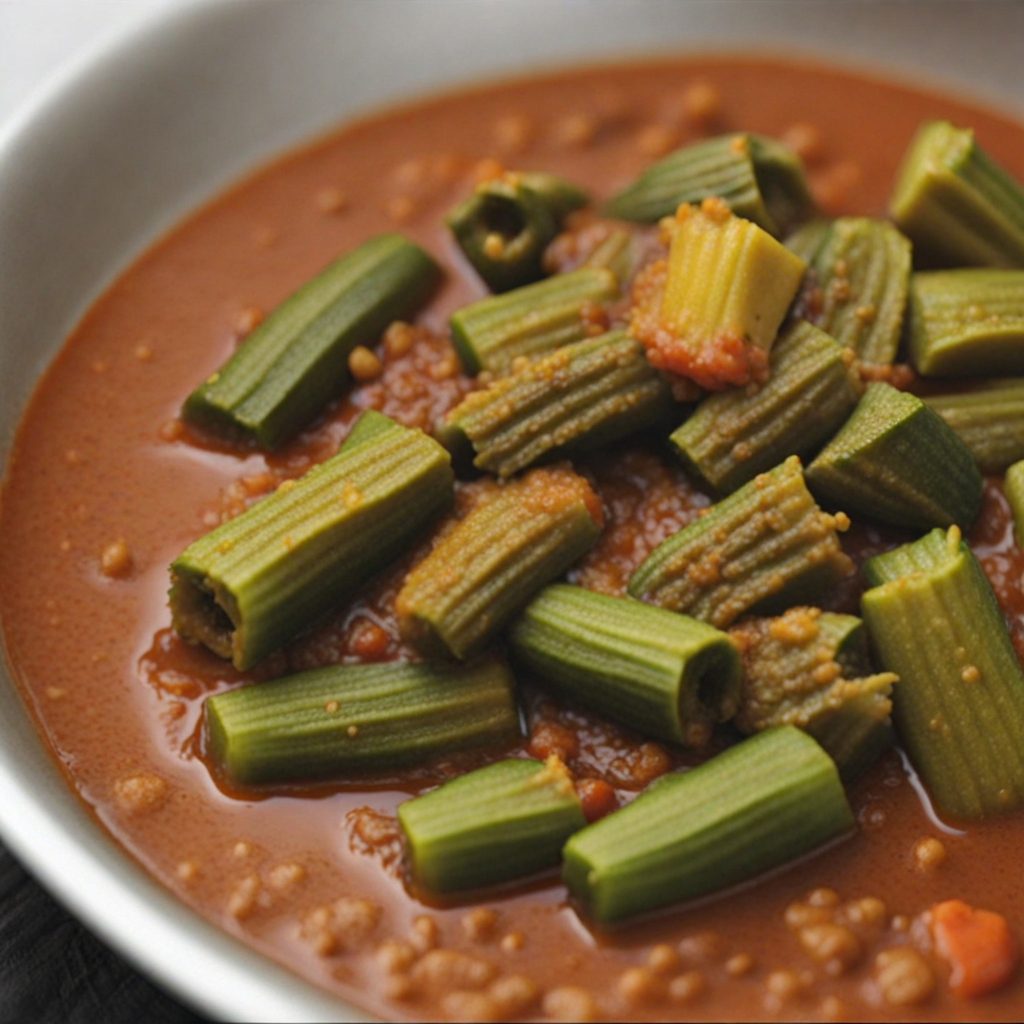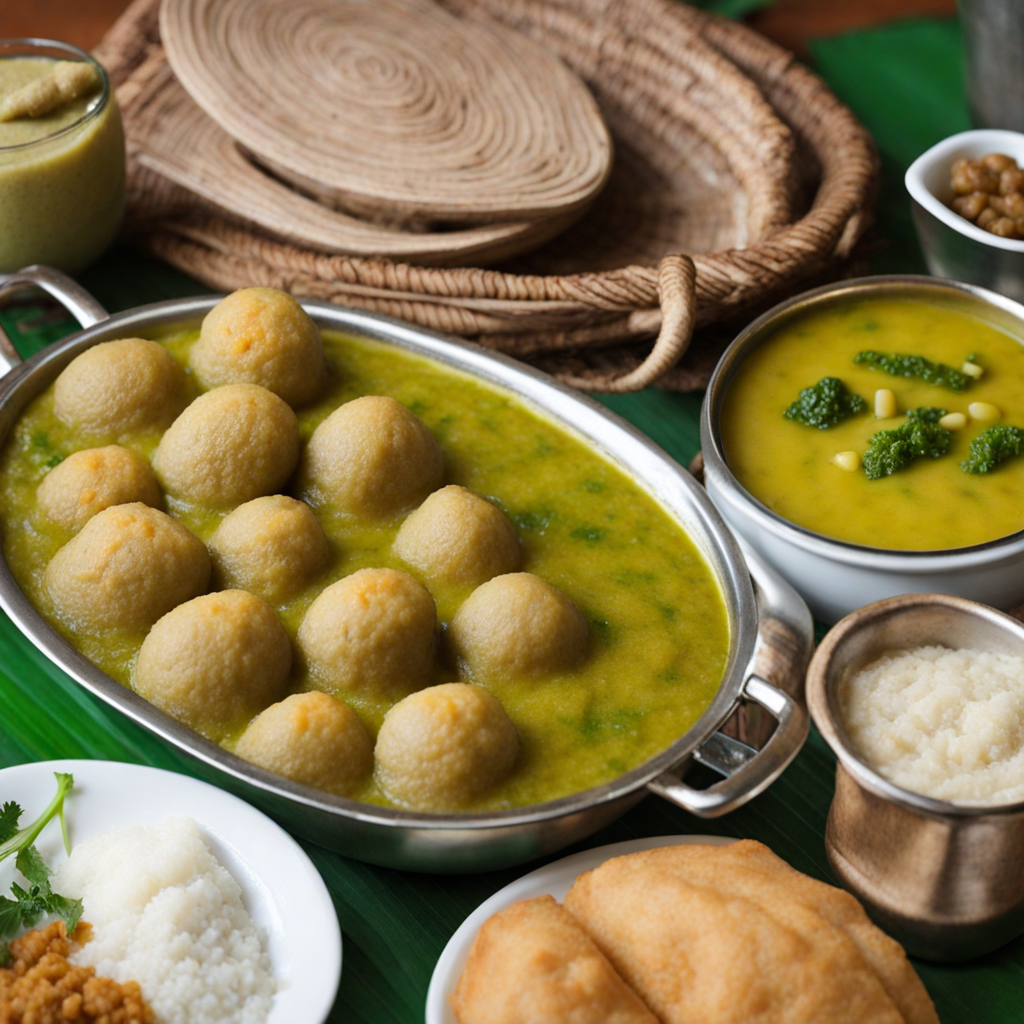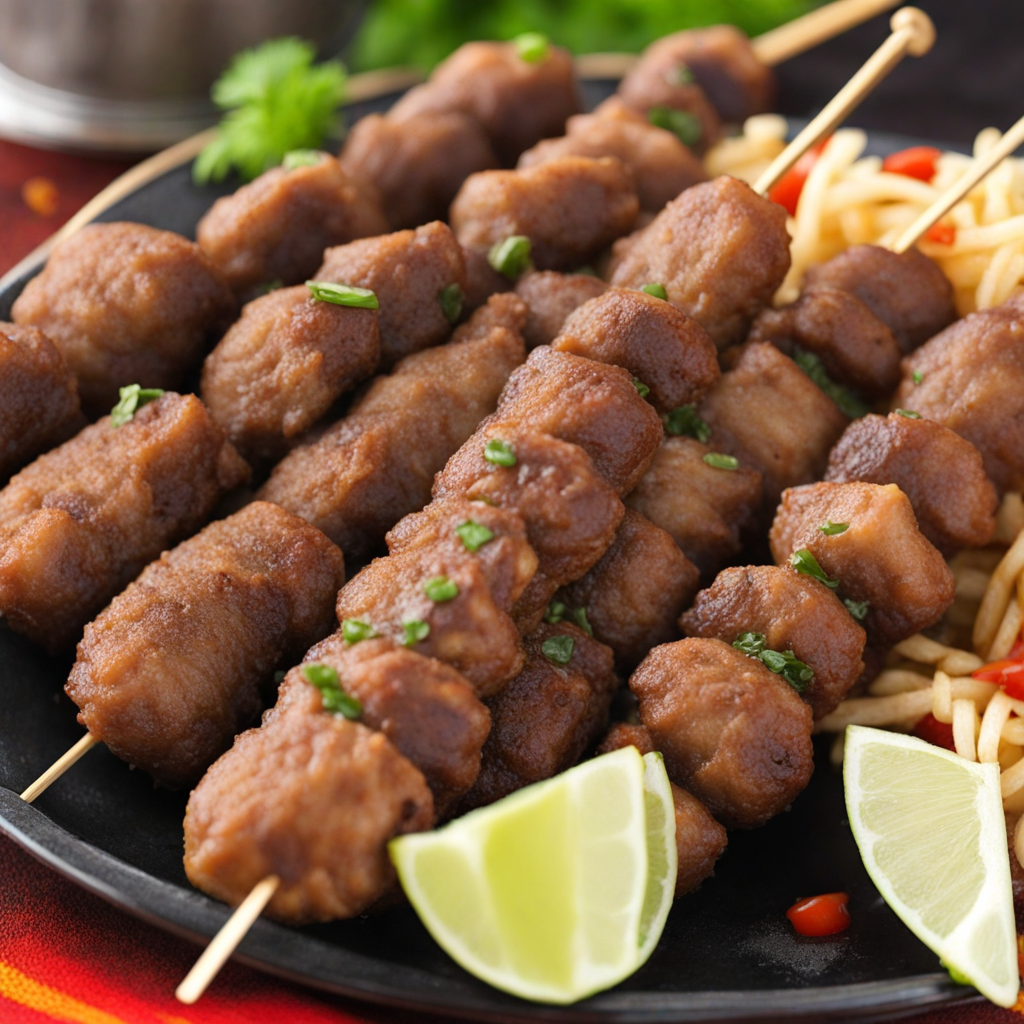Beans Stew
Beans stew, known as "Red Red" in Ghana, is a rich and hearty dish that showcases the vibrant flavors and textures of West African cuisine. The base of the stew is made from black-eyed peas or kidney beans, which are simmered until tender and infused with a blend of spices. The dish gets its signature color and depth from the addition of palm oil, which not only adds a beautiful hue but also contributes a unique, slightly sweet flavor that pairs perfectly with the beans. The stew is often seasoned with onions, tomatoes, and a variety of spices, including pepper, garlic, and ginger, creating a fragrant and inviting aroma that fills the kitchen as it cooks. The texture of beans stew is wonderfully comforting, with the beans providing a creamy consistency that contrasts beautifully with the chunky vegetables. As the stew simmers, the flavors meld together, resulting in a dish that is both hearty and satisfying. Traditionally served with fried plantains, rice, or even boiled yams, beans stew offers a delightful balance of flavors and textures, making it a versatile meal option that can be enjoyed at any time of day. The sweetness of the fried plantains complements the savory stew, creating a harmonious plate that is sure to please the palate. Beans stew is not only delicious but also a nutritious choice, packed with protein and fiber from the beans. It is a staple in Ghanaian households and reflects the country's rich culinary heritage. With its bold flavors and satisfying nature, beans stew invites food enthusiasts to explore the diverse tastes of Ghana. Each bite tells a story of tradition and community, making it not just a meal but a celebration of culture that can be enjoyed by all.
How It Became This Dish
The History of Bɛɛns: A Culinary Treasure of Ghana #### Origins and Early History Bɛɛns, commonly known as "beans" in English, holds a special place in the culinary and cultural landscape of Ghana. The term "bɛɛns" generally refers to various types of beans, with black-eyed peas, cowpeas, and other leguminous varieties being particularly popular. The origins of beans can be traced back thousands of years, with archaeological evidence suggesting that legumes were cultivated in Africa as early as 3000 BC. They became integral to the diets of various African societies due to their high protein content, adaptability, and ability to enrich the soil through nitrogen fixation. In Ghana, beans have been a staple food for centuries. The indigenous people of the region cultivated various beans, which, combined with local grains and vegetables, formed the backbone of their diet. The versatility of beans allowed them to be incorporated into a variety of dishes, making them a vital food source for both the rich and the poor. #### Cultural Significance Beans are not just a source of sustenance in Ghana; they are a symbol of community, resilience, and cultural identity. In many Ghanaian communities, beans are associated with traditional festivals and communal gatherings. The act of cooking and sharing bean dishes brings families and friends together, strengthening social bonds. Beans are often featured in ceremonial meals, especially during significant life events such as weddings and harvest festivals, where they symbolize abundance and fertility. In Ghanaian folklore, beans also carry various meanings. They are often used in proverbs and sayings that emphasize virtues such as patience, hard work, and the importance of community. For instance, the saying "Bɛɛns no yɛ dɛ, na ɛdɔm" translates to "Beans are sweet when they are many," highlighting the importance of unity and collaboration. #### Development Over Time As Ghanaian society evolved, so too did the cultivation and preparation of beans. The introduction of new beans varieties from different parts of the world, particularly during the transatlantic trade and colonial periods, expanded the range of legumes available to Ghanaians. The black-eyed pea, for instance, became a staple in many Ghanaian households, prized for its flavor and nutritional benefits. During the colonial period, beans were often cultivated as cash crops, leading to increased production and exportation. This shift brought beans into the global market, allowing Ghana to share its culinary traditions with the world while also enhancing local economies. However, the focus on cash crops sometimes overshadowed local consumption, leading to changes in dietary patterns. In contemporary Ghana, beans continue to play a crucial role in the diet, especially in urban areas where fast-paced lifestyles demand quick, nutritious meals. Street vendors and local eateries feature a variety of bean dishes that are accessible and affordable. One of the most popular dishes is "Gari and Beans," a delightful combination of cooked beans served with gari (grated cassava) and often accompanied by pepper sauce, creating a deliciously satisfying meal. Another beloved dish is "Bɛɛns Nkwan," a hearty bean soup that includes spices, tomatoes, and sometimes meat or fish. This dish showcases the culinary creativity of Ghanaians, as beans are often paired with local ingredients to create flavors that reflect the region's rich agricultural heritage. #### Nutritional and Economic Impact Beans are celebrated not just for their culinary uses but also for their nutritional value. They are an excellent source of protein, fiber, and essential nutrients, making them a vital component of the Ghanaian diet. In a country where many rely on plant-based diets, beans provide a cost-effective way to meet nutritional needs. The economic impact of beans cannot be understated. As a crop that is relatively easy to grow and requires less water than many other staples, beans are often cultivated by smallholder farmers across Ghana. They provide a source of income for families, contribute to food security, and support local economies. The cultivation of beans also promotes sustainable agricultural practices, as they help to improve soil health and reduce the need for chemical fertilizers. #### Modern Trends and Innovations In recent years, there has been a noticeable shift in how beans are perceived and utilized in Ghana. As globalization influences dietary habits, there is a growing interest in exploring traditional foods like beans from a contemporary perspective. Chefs and food enthusiasts are experimenting with beans in innovative ways, incorporating them into fusion dishes that blend Ghanaian flavors with global culinary techniques. For instance, bean burgers have emerged as a popular alternative to meat-based patties, appealing to health-conscious consumers and vegetarians alike. Additionally, beans are being featured in various health food products, such as bean-based snacks and protein powders, further elevating their status in the modern food landscape. Moreover, organizations focused on food sustainability are promoting the cultivation of native bean varieties as part of efforts to preserve biodiversity and educate communities about the nutritional benefits of traditional foods. These initiatives encourage younger generations to embrace and celebrate their culinary heritage, ensuring that the legacy of beans continues to thrive. #### Conclusion Bɛɛns, as a culinary staple in Ghana, embodies the rich history, cultural significance, and nutritional value of legumes in the region. From their early cultivation to their integral role in communal gatherings and celebrations, beans have shaped the dietary landscape of Ghana for centuries. As the country continues to evolve, so too does its relationship with beans, adapting to modern trends while honoring traditional practices. The journey of beans in Ghana is a testament to the resilience of cultural identity through food. As Ghanaians continue to innovate and celebrate their culinary heritage, beans will undoubtedly remain a cherished ingredient that nourishes both the body and the spirit, bridging generations and communities in the process. Through every bowl of bean soup or plate of Gari and Beans, the history, culture, and future of Ghanaian cuisine are beautifully intertwined.
You may like
Discover local flavors from Ghana







